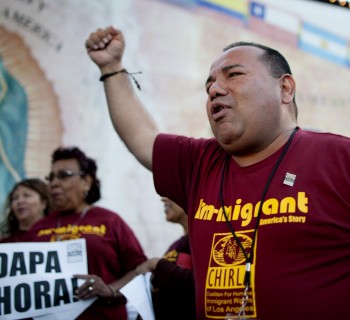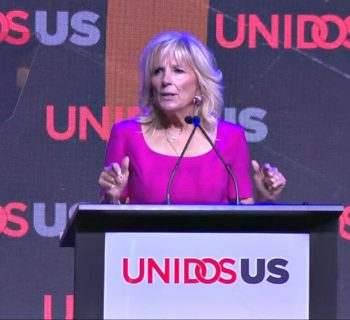By: Anne Ryman and Daniel Gonzalez, AZ Central ~ June 20, 2017
Undocumented students granted protection from deportation under a program started by former President Barack Obama are not eligible for lower in-state college tuition, the Arizona Court of Appeals ruled Tuesday.
The court ruled that a judge's 2015 decision that young immigrants known as "dreamers" were considered legally present in the U.S. and therefore qualify for state benefits was incorrect.
Presiding Judge Kenton Jones wrote that the 2012 Deferred Action for Childhood Arrivals program, known as DACA, did not confer that status. He said federal immigration law allows each state to decide on optional benefits for DACA recipients, and Arizona law bars in-state tuition.
Impact on current students
About 250 current DACA students at the state universities and about 2,000 DACA students in Maricopa Community Colleges are receiving lower, in-state tuition rates. There are nearly 28,000 DACA recipients in Arizona.
"Dreamers" have been able to receive lower, in-state tuition rates at the state's three universities — Arizona State, University of Arizona and Northern Arizona University — since 2015. The rates are substantially less than what non-resident students pay. For example, the in-state rate for undergraduate students at ASU is $10,640 this year compared to $26,470 for non-resident students.
At Maricopa Community Colleges, the in-state rate is $86 per credit hour vs. $241 for non-residents.
Karina Ruiz, board president of the Arizona Dream Act Coalition, a group that advocates for undocumented immigrants brought to the U.S. as children, criticized the state for trying to take away in-state tuition from undocumented students who have been granted DACA status.
Advocate: 'This is all hate'
“This is all hate,” Ruiz said. “There is nothing else. There is no reason for the state to be fighting students that want to get educated. This is wrong. The state should be using the resources and the money and the tax dollars on fighting for things like teachers’ pay instead of fighting kids who just want to go school.”
The organization is exploring legal options to overturn the Appeals Court ruling so that students with DACA will be able to continue to pay in-state tuition rather than more costly out-of-state tuition.
She predicted that many DACA students will be forced to drop out of community colleges or the state universities if the ruling stands and they are forced to pay higher out-of-state tuition rates.
Ruiz graduated from ASU in 2015 with a degree in biochemistry. Because she was forced to pay out-of-state tuition, she said it took her 12 years to graduate because she could only to take one class at a time.
“Exactly the nightmare that I lived, not being able to go to school and move on with my life, is what is going to happen to other students if this does not get reverted. It’s impossible to afford three times the tuition. There aren’t a lot of scholarships out there. I know a lot of dreamers who are working to afford their tuition and this is going to make it impossible for them.”
Arizona Attorney General Mark Brnovich, who appealed the 2015 ruling, said more than 70 percent of Arizona voters approved Proposition 300, the law denying in-state tuition rates to undocumented immigrants that was passed in 2006.
"I am sympathetic to all young adults looking to improve their lives, but as attorney general my job is to defend the law and not second guess the will of Arizona voters," he said in a statement.
The long road to Tuesday's ruling
The issue of dreamers and what tuition they should pay has been a controversial one in Arizona.
Arizonans voted in 2006 to deny in-state tuition rates to undocumented immigrants under Proposition 300.
Obama created a policy in 2012 that allows undocumented immigrants brought to the U.S. as children to apply for deportation deferments and work permits. Homeland Security officials have emphasized that work permits granted to people approved for DACA bestow legal presence, but not legal status.
Maricopa Community Colleges took the position that dreamers with work permits were eligible for lower, in-state tuition. Then-state Attorney General Tom Horne sued the colleges in 2013, arguing that the state's largest community college district violated the state law enacted by voters.
Maricopa County Superior Court Judge Arthur Anderson ruled on that lawsuit in May 2015, saying Arizona law doesn't bar benefits to immigrants lawfully in the country.
Under federal law, the DACA students are lawfully present, he wrote.
"Federal law, not state law, determines who is lawfully present in the U.S. ... The circumstance under which a person enters the U.S. does not determine that person's lawful presence here," Anderson wrote.
That ruling prompted the Arizona Board of Regents, who oversee the state universities, to reverse their policy and begin offering lower, in-state tuition to dreamers.
Big impact at community colleges
The regents said 240 DACA students were enrolled at the state universities as of December 2016: 186 at ASU, 45 at UA and nine at NAU.
Maricopa Community Colleges has 2,056 DACA students, said Matthew Hasson, a college spokesman.
He said college officials are reviewing the Appeals Court ruling with attorneys, and the college's governing board will meet next week in executive session to discuss the matter.
"The Maricopa County Community College District is built on a foundation of providing access to higher education for diverse students and communities, and we continue to be committed to that mission," Hasson said in a statement.
Victor Viramontes, national senior counsel at the Mexican American Legal Defense and Educational Fund, a civil rights organization, said one legal option may be to file an appeal with the Arizona Supreme Court.
MALDEF had previously filed legal briefs defending the Maricopa Community College's decision to allow students with DACA to pay in-state tuition, arguing they were no different than other people with deportation deferments allowed to pay in-state tuition in the past.
MALDEF also filed a counter suit against the state on behalf of DACA students defending their right to pay in-state tuition.
Viramontes said Tuesday’s Appeals Court ruling applies specifically to students enrolled in Maricopa Community Colleges. He said other community colleges and the state’s three universities will have to review the ruling and decide whether they should follow the decision as well.
At least 20 states offer in-state tuition to some unauthorized immigrant students, many of those by legislative action and some through their state university systems.
The Associated Press contributed to this story.
Source: AZ Central







